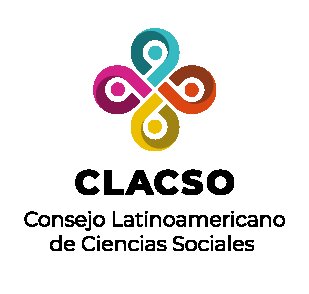Authors
Abstract
Abstract: This article presents in a succinct manner some historical and analytical elements of the method in Marx as a fundamental base to recover his theoretical-methodological heritage as part of a critical renewal of Social Work in Colombia and Latin America. This work is part of the theoretical foundation processes for the research carried out in the Master’s in Social Service studies with the objective of apprehending the theoretical and methodological legacy of Marx for the analysis of reality and Social Work, for which a study of this thinker’s written work as well as other intellectuals that reflected about the method within the Marxist tradition was conducted. Following there are eight sections containing a brief historic context in order to bring the reader closer to what was the path followed by Marx in his apprehension of the dialectics, materialism and historicism, constituting onwards the historical and dialectical materialistic method from which some elements for the introduction of its study are higlighted which are considered key to enter its study, hence it is concluded the need to aprehend: (i) Marx’s theoretical-methodological path; (ii) the appearance-essence dialectical relationship; (iii) theory as scientific appropriation of reality; (iv) categories in the Marxian theory; (v) the perspective of totality and its mediations between the singular, the particular and the universal; (vi) abstraction and the movement of the object in the mind of the subject; (vii) from researchto exposition; and (viii) praxis as the final objective. On the other hand, it was concluded that the need to complement the analysis of the dialectical materialistic and historical method with the critique of political economy and the socialist/communist revolutionary project
References
Kosik, K. (1983). Dialéctica de lo concreto. México D.F., México: Grijalbo.
Lenine, V.I. (1986). Karl Marx. As três fontes e as três partes constitutivas do marxismo. En Obras Escolhidas. São Paulo, Brasil: Ed. Alfa-Omega.
Lukács, G. (1978). As bases ontológicas do pensamento e da atividade do homem. Revista Temas de Ciências Humanas.
_________. (2009). O jovem Marx e outros escritos de filosofia. Rio de Janeiro, Brasil: Ed. UFRJ.
__________. (2003). História e consciência de classe. São Paulo, Brasil: Ed. Martins Fontes.
Marx, K. (1973). Tesis sobre Feuerbach. En Obras Escogidas en tres tomos, (Tomo I). Moscú, Rusia: Editorial Progreso.
_______. (1976). El Capital. Crítica de la economía política. Bogotá, Colombia: Fondo de Cultura Económica.
_______. (2011). Contribuição à crítica da economia política. São Paulo, Brasil: Expressão Popular.
Netto, J.P. (Org.). (2012a). O leitor de Marx. Rio de Janeiro, Brasil: Civilização Brasileira.
_______________. (2012b). Marxismo impenitente. Contribuição à história das ideias marxistas.São Paulo, Brasil: Expressão Popular.
Quintero, S. (2014). El “Método Caldas” y la reconceptualización del trabajo social. Revista Eleuthera, 10 (1), 182-203.
Sánchez, A. (2011). Filosofia da práxis. São Paulo, Brasil: Expressão Popular, CLACSO.
Tapiro, J.P. (2013a). Posibilidades de un Trabajo Social Crítico en Colombia. Revista Prospectiva, 18, 69-99.
__________. (2013b). Hacia la superación del pensamiento burgués y la ofensiva posmoderna en Trabajo Social y las ciencias sociales. Revista Eleuthera, 8 (1), 213-231.

 PDF (Español)
PDF (Español)
 FLIP
FLIP
























